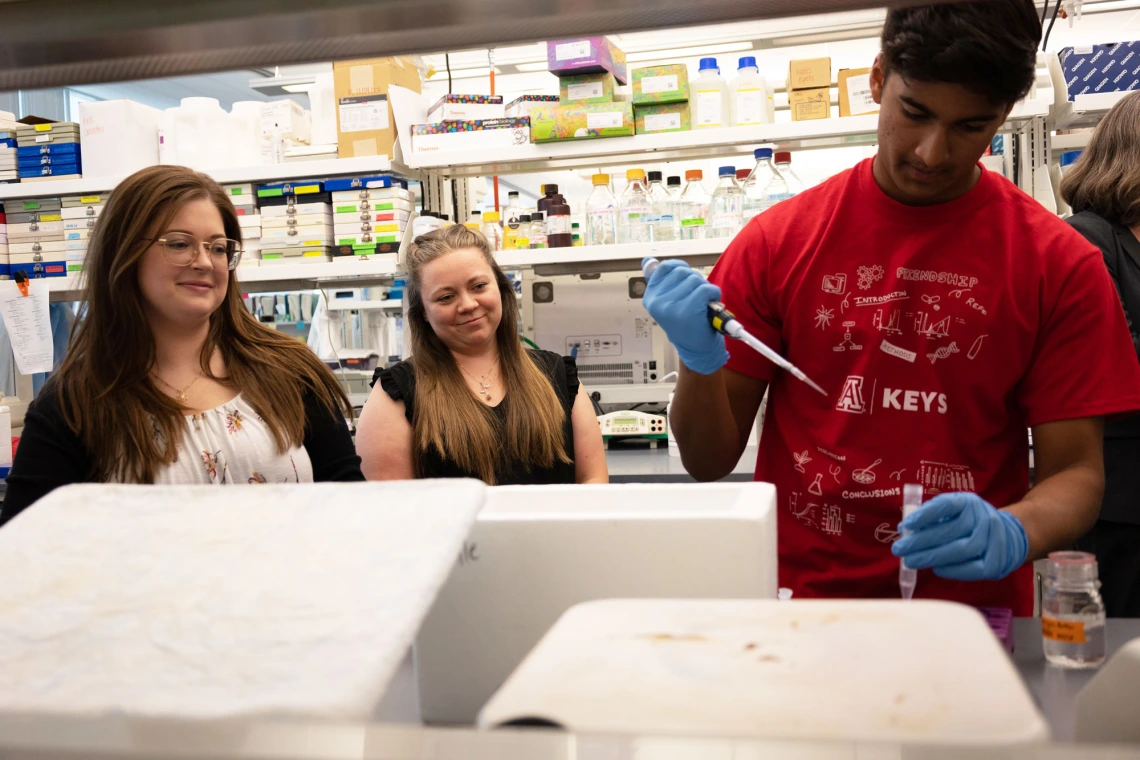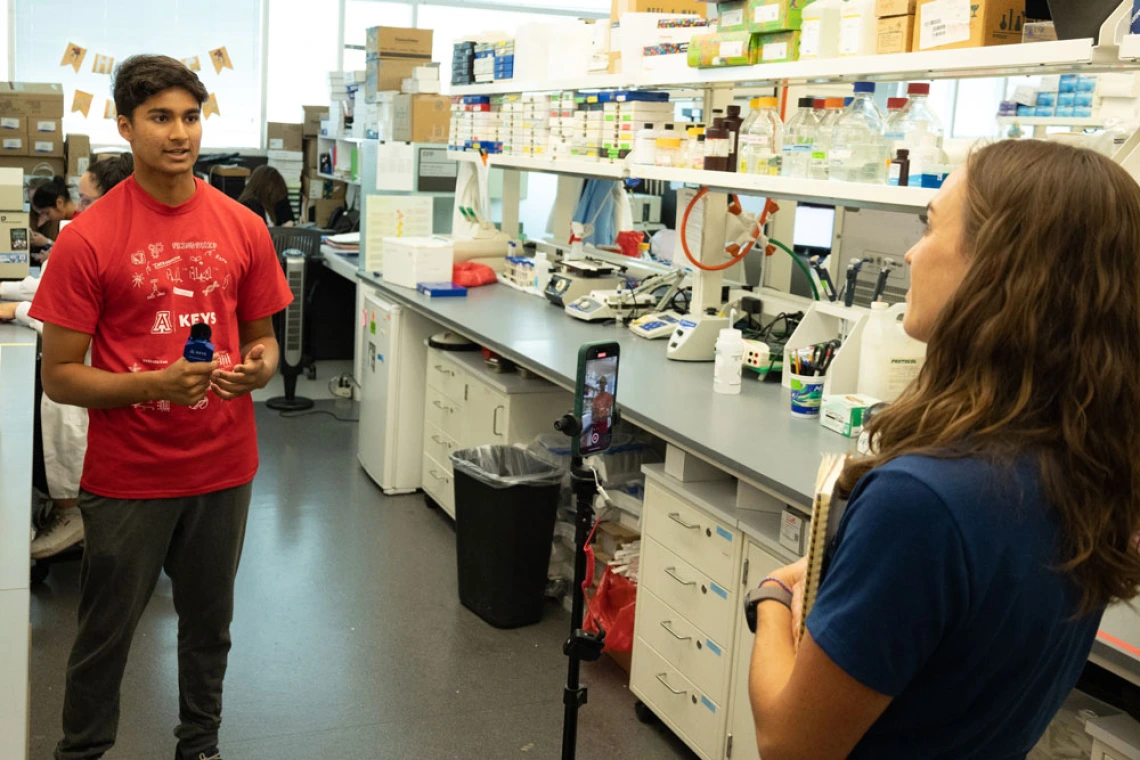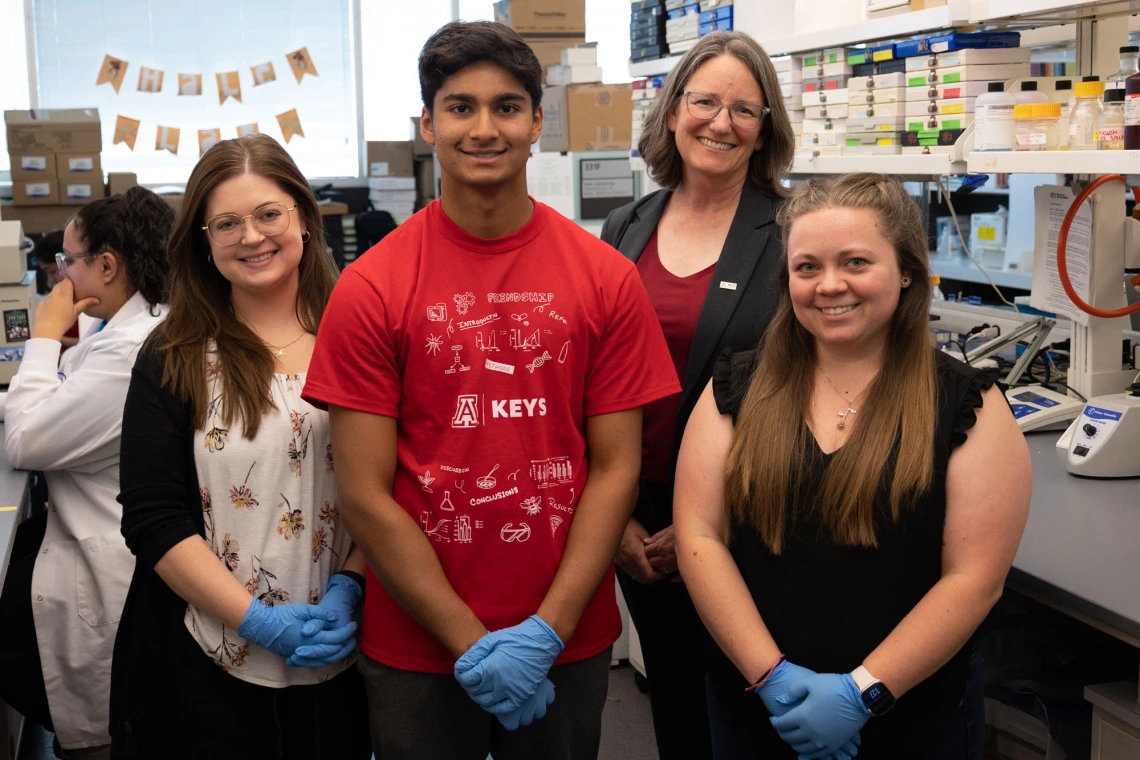Connecting biology to better heart treatments
2025 Phoenix KEYS intern Adi Tyagi (he/him) studied how female and male heart tissue reacts to stress and inflammation in the lab of Taben Hale.

2025 Phoenix KEYS intern Adi Tyagi (right) from Chaparral High School worked with postdoctoral researcher Ashton Jorgensen (left) and research specialist Dana Floyd (right) to understand how high blood pressure (hypertension) affects heart health.
Deanna Rodriguez, BIO5 Institute
In the lab of Taben Hale, professor and vice chair of Basic Medical Sciences and associate dean of Graduate Studies at the University of Arizona College of Medicine – Phoenix, researchers study how high blood pressure (hypertension) affects heart health. Over time, high blood pressure can cause the heart to change shape, a process called cardiac remodeling. These changes make it harder for the heart to pump blood and can eventually lead to heart failure.
Hale’s team is especially interested in how these changes differ between males and females. Many older studies focused mostly on men, so the lab is working to fill in those gaps and improve treatment for everyone.
This summer, Phoenix KEYS intern Adi Tyagi (he/him) helped the team study how female and male heart tissue reacts to stress and inflammation.
“They may discover they love research and want to do more. They may discover they hate it, and that’s important too,” said Hale. “But no matter what, they’ll learn how to ask scientific questions and how research impacts all our lives. And especially today, that’s important.”

Adi Tyagi (left) explaining his summer research project in the Taben Hale lab.
Deanna Rodriguez, BIO5 Institute
Postdoctoral researcher Ashton Jorgensen and research specialist Dana Floyd mentored Tyagi, guiding him through lab techniques and the bigger picture of cardiovascular research. They taught him techniques such as western blotting, which helps detect specific proteins in cells, and microscopy, which allows scientists to closely examine tissue.
“Adi approached each experiment with genuine curiosity and excitement, always eager to get involved and ask thoughtful questions. It was inspiring to see how much he grew in confidence and independence over time,” said Jorgensen.
Floyd added: “Mentoring a student like Adi reminds you why this work matters. His curiosity made us rethink how we explain complex topics, and that fresh perspective strengthens the whole lab.”
Tyagi’s work can help explain why heart disease might look and respond differently to treatment in men versus women.
“I’ve always wondered how doctors know what treatments to use, and I realized that research is the foundation,” said Tyagi. “This experience helped me understand how science drives medicine, and it’s inspired me to bridge that gap between innovation and access in underserved communities.”

(Left to right) Ashton Jorgensen, Adi Tyagi, Taben Hale, and Dana Floyd pose in their lab at the University of Arizona College of Medicine - Phoenix.
Deanna Rodriguez, BIO5 Institute
Take a closer look at how KEYS interns are helping advance real-world research across Arizona.

